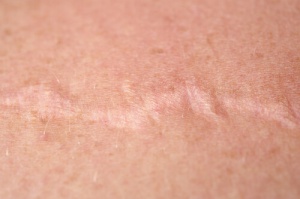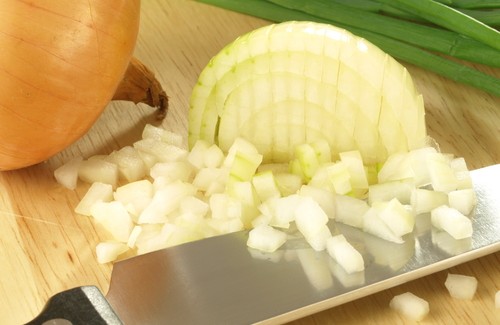How to Use Onions to Treat Scars

Onions are a great vegetable that is used around the world to season both common and elaborate dishes. In addition, they have many beneficial properties for your health and skin-related problems. In this article, we’ll look at how you can use onions to treat scars, from bothersome stretch marks to surgical scars.
Using onions to treat scars
You can use onions to treat scars effectively since they help regenerate damaged skin. To use it, first, take onion extract and apply it to the scarred areas. This extract helps improve collagen production wherever it is applied and significantly improves the appearance of scars.
The effectiveness of onion extract
Onion extract is very effective on hypertrophic and keloid scars. These are scars from surgery or an injury that grow excessively. In addition, they usually become very thick and have fibrous tissue. You should see results with the onion extract after about six to eight weeks.
Make sure to read: 5 Treatments With Coconut Oil to Reduce Stretch Marks and Scars
Preparing onion extract
To properly prepare onion extract, you’ll need:
- Cutting board
- Knife
- Dish soap
- Water
- Ice
- Thermometer
- Coffee filters
- Distilled water
- Salt
- 2 medium-sized bowls
Instructions
First, mix 3 grams of salt with 10 grams of soap. Then, cut the onion in very small, uniform pieces. Put them in one of the bowls. Then, add the salt and soap mixture and stir well.
Put the mixture in a double boiler for about 15 minutes. Then, immediately put it in cold water for five minutes while stirring continuously.
Blend for five seconds and then strain it using a coffee filter into the second bowl. The strained liquid is your onion extract.
This may also interest you: Eggplant Extract: A Natural Formula for Reducing Cholesterol
For best results, onion extract should be applied to the scarred areas once a day, whether on its own or mixed with a moisturizing cream or the cleanser you use regularly.
Finally, be careful when using this product. If you have very sensitive skin, your skin may become irritated and develop contact dermatitis. Therefore, pay attention to your skin’s reactions and if you notice it getting red or something similar, stop the treatment immediately. If needed, see a dermatologist as soon as possible.
All cited sources were thoroughly reviewed by our team to ensure their quality, reliability, currency, and validity. The bibliography of this article was considered reliable and of academic or scientific accuracy.
-
Hosnuter, M., Payasli, C., Isikdemir, A., & Tekerekoglu, B. (2007). The effects of onion extract on hypertrophic and keloid scars. Journal of Wound Care. https://doi.org/10.12968/jowc.2007.16.6.27070
-
Zurada, J. M., Kriegel, D., & Davis, I. C. (2006). Topical treatments for hypertrophic scars. Journal of the American Academy of Dermatology. https://doi.org/10.1016/j.jaad.2006.03.022
-
Caviggioli, F., Vinci, V., Vappiani, M., Lisa, A., Maione, L., & Klinger, M. (2017). Evidence-Based Scar Management. Plastic and Reconstructive Surgery. https://doi.org/10.1097/PRS.0000000000003385
This text is provided for informational purposes only and does not replace consultation with a professional. If in doubt, consult your specialist.









